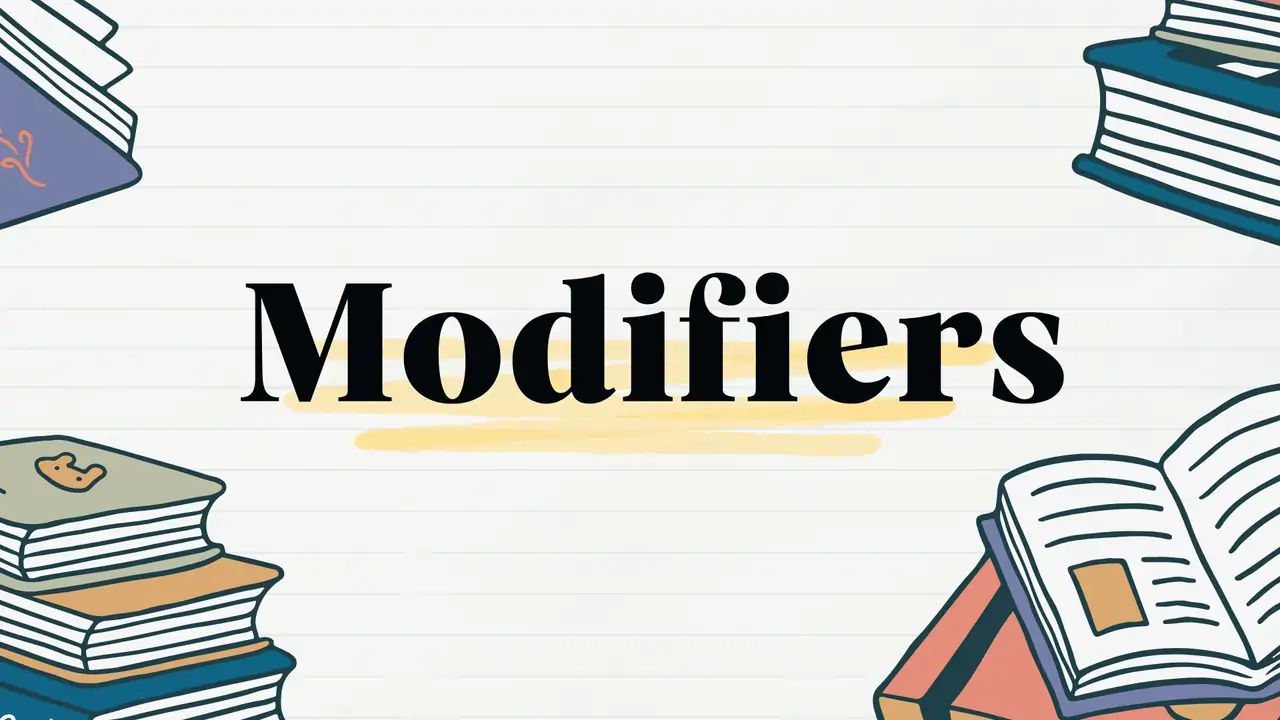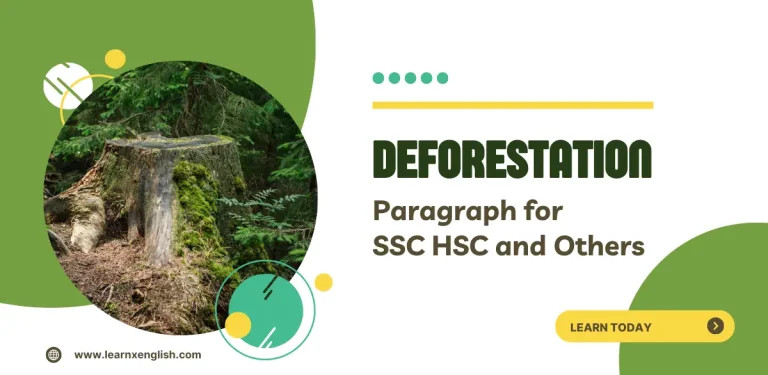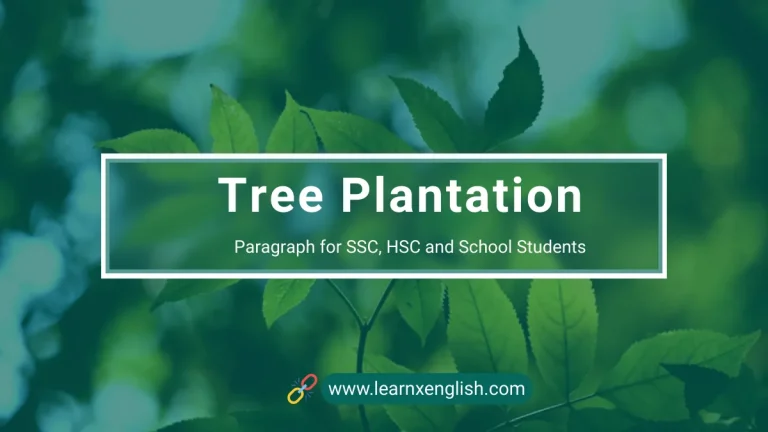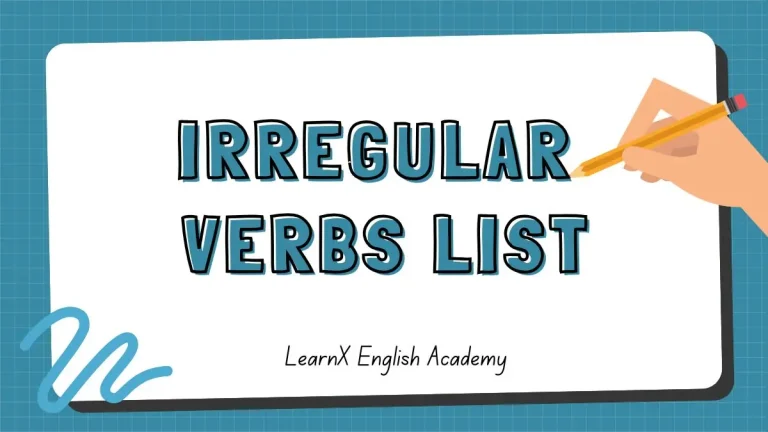Modifiers কি? এর কাজ কি?
যে সকল word/phrase অন্য কোনো word/phrase-এর আগে বা পরে বসে তাকে পরিবর্তন, রূপান্তর করে, কিংবা অতিরিক্ত তথ্য দেয় তাকে Modifier বলে। নিচের উদাহরণ গুলো খেয়াল করোঃ
- He is running.
- He is running fast. (verb post-modified)
- He is running very fast. (intensifier used)
প্রথম বাক্যটা একদম সহজ সরল। একটা লোক দৌড়াচ্ছে।
দ্বিতীয় বাক্যেও সেইম, লোকটি দৌড়াচ্ছে। কিন্তু, এখানে অতিরিক্ত কিছু তথ্য আছে, তথ্যটা ‘দৌড়ানো’ নিয়ে। দৌড় আস্তে হতে পারে, আবার দ্রুতও হতে পারে। এখানে সেটা ক্লিয়ার করে বলা হয়েছে যে, সে দ্রুত দৌড়াচ্ছে। অর্থাৎ, fast শব্দ দ্বারা running-কে মডিফাই করা হলো।
তৃতীয় বাক্যে আরও কিছু বলা হয়েছে। কতটা দ্রুত? আমি দ্রুত দৌড়াতে পারি, তুমিও পারো। কিন্তু, এই স্বাভাবিক দ্রুত দৌড়ের থেকেও বেশি জোরে দৌড়ানো যেতে পারে। উসাইন বল্ট টাইপ দৌড় আরকি। তাই, বলা হয়েছে, ‘খুব দ্রুত দৌড়াচ্ছে’। অর্থাৎ, এখানে very শব্দ দ্বারা ‘fast’-এর উপর আরও জোর প্রদান করা হলো।
- Kazi Nazrul Islam is a poet.
- Kazi Nazrul Islam is a rebel poet. (noun pre-modified)
চতুর্থ বাক্যটা প্রথম বাক্যের মত সহজ সরল। কাজী নজরুল ইসলাম একজন কবি।
পঞ্চম বাক্যে, ঐ একই বাক্যের ‘poet’ শব্দটা সম্পর্কে অতিরিক্ত তথ্য দেওয়া হলো। সেটা কী? তিনি একজন ‘rebel’ বা বিদ্রোহী কবি। অর্থাৎ, ‘rebel’ শব্দটি ‘poet’ শব্দটিকে মডিফাই করলো।
এখন, পরীক্ষায় অনেক ধরনের modifier ব্যবহার করতে বলা হয়। নিচে বিগত সালের বোর্ড পরীক্ষার কয়েকটা modifier-এর উদাহরণ দেখা যাক। এই প্রশ্নগুলোতে কি কি modifier ইউজ করতে বলা হয়েছে সেগুলো হাইলাইট করে উদাহরণসহ বিস্তারিত আলোচনা করা হলো। পরীক্ষায় এই প্রশ্নটা প্যাসেজ আকারে আসে। এখানে ক্লিয়ার দেখানোর জন্য, এবং বোঝার সুবিধার্থে প্যাসেজগুলকে ভেঙ্গে লাইন করে দেখানো হলো। লাইনগুলো পাশে যে বাংলা সংখ্যা, সেই অনুযায়ী বিস্তারিত সাজানো হয়েছে।
Modifier দুই ধরনের হয়।
- Pre-modifier, যেগুলো word/phrase-এর আগে বসে। Pre-এর অর্থ ‘পূর্বে’ এটা কে না জানে?
- Post-modifier, বুঝে গেছো না? পরে যেগুলো ব্যবহৃত হয়।
Modifier এর ভুল ব্যবহারে কি হতে পারে?
বাক্যদুটো খেয়াল করোঃ
- I smelled the oyesters coming down the stairs for dinner. (হাহাহা, যেন ঝিনুকগুলো হেটে আসছিল।)
- Coming down the stairs, I smelled the oyesters was cooking for dinner. (এবার থিক আছে।)
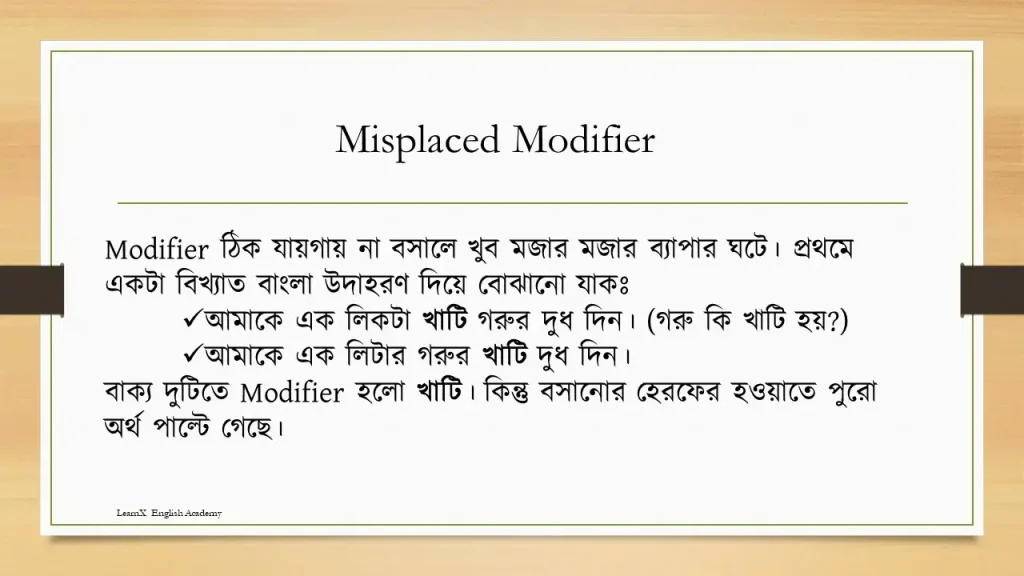
পরীক্ষায় যেসব Modifier আসবে
এখন, পরীক্ষায় অনেক ধরনের modifier ব্যবহার করতে বলা হয়।নিচে বিগত সালের বোর্ড পরীক্ষার কয়েকটা modifier-এর উদাহরণ দেখা যাক। এই প্রশ্নগুলোতে কি কি modifier ইউজ করতে বলা হয়েছে সেগুলো হাইলাইট করে উদাহরণসহ বিস্তারিত আলোচনা করা হলো। পরীক্ষায় এই প্রশ্নটা প্যাসেজ আকারে আসে। এখানে ক্লিয়ার দেখানোর জন্য, এবং বোঝার সুবিধার্থে প্যাসেজগুলকে ভেঙ্গে লাইন করে দেখানো হলো। লাইনগুলো পাশে যে বাংলা সংখ্যা, সেই অনুযায়ী বিস্তারিত সাজানো হয়েছে।
- Cricket is an (a) ___ (pre-modify the noun) game. এক
- It is not a game of (b) ___ (use possessive to pre-modify the noun) country. দুই
- A (c) ___ (use a noun adjective to pre-modify the noun) match is played between two teams. তিন
- (d) ____ (use a distributive pronoun to pre-modify the noun) team consists of eleven players. চার
- A cricket field must be (e) ____ (post modify the noun). পাঁচ It requires two wooden bats, a ball & two sets of stamps.
- (f) ____ (use a numeral adjective to pre-modify the noun) umpires conduct the game. ছয়
- Sometimes, a third umpire is required (g) ____ (use an infinitive to post-modify the verb) an acute confusion. সাত
- (h) ___ (use a participle to pre-modify the noun) the opportunity, the batter hits the ball away at a good distance and runs to the opposite wicket. আট
- If (i) ___ (use an indefinite pronoun to pre-modify the noun) batter is out, next batter comes in his place. নয়
- Both teams try (j) ____ (use an adverbial phrase to post modify) to out all batters of the opposite. দশ
Pre-modify the noun
অর্থাৎ, noun-এর আগে কিছু বসিয়ে সেটাকে মডিফাই করতে হবে, বা noun-টি সম্পর্কে অতিরিক্ত তথ্য দিতে হবে। noun/pronoun-কে সবসময় adjective-ই মডিফাই করে। এরকম কিছু উদাহরণ হতে পারে এমনঃ
- He’s a brilliant musician.
- They’re a remarkable team.
Take this quiz:
use possessive to pre-modify the noun
Possesive কি? Pronoun বিভিন্ন প্রকারের হয়, তার মধ্যে possessive pronoun একটি। এগুলো হলোঃ My, Your, His, Her, Its, Our, Their, Whose। Possess মানে হলো অধিকারে থাকা। সেই হিসেবে, যে pronoun গুলো দিয়ে কোন কিছু নিজের, বা অধিকারে থাকা বোঝায় সেগুলোই হলো possessive। উদাহরণঃ
- This is my idea.
- Sir, these are your tickets.
Exercise:
- She loves ______ family. (Use possessive to pre-modify the noun)
- ______ dog is very friendly. (Use possessive to pre-modify the noun)
- This is ______ book. (Use possessive to pre-modify the noun)
use a noun adjective to pre-modify the noun
Noun adjective কি? পাশাপাশি যখন দুটি noun ব্যবহৃত হয় তখন প্রথম noun-টি adjective-এর মত কাজ করে, অর্থাৎ দ্বিতীয় noun সম্পর্কে অতিরিক্ত তথ্য দেয়। উদাহরণঃ
- This is a school bus.
- I saw a race car.
- Do you like this coffee mug?
Exercise:
- He bought a ______ bag. (Use a noun adjective to pre-modify the noun)
- They live in a ______ house. (Use a noun adjective to pre-modify the noun)
- She works at a ______ shop. (Use a noun adjective to pre-modify the noun)
use a distributive pronoun to pre-modify the noun
আবারো, pronoun এর অন্য একটা প্রকার। মনে রাখার জন্য এভাবে ভাবতে পারো, distribute অর্থ হল ভাগ করে দেয়া। তো, যে pronoun গুলো দিয়ে এরকম কিছু বোঝাবে তখন সেটা distributive pronoun। Each, Every, Either, Neither ইত্যাদি হলো distributive pronoun। বাক্যে উদাহরণঃ
- Each student received a certificate.
- Every person must sign the form.
- Either option is acceptable.
- Neither answer is correct.
Exercise:
- ______ boy in the class got a prize. (Use a distributive pronoun to pre-modify the noun)
- ______ book on the shelf is interesting. (Use a distributive pronoun to pre-modify the noun)
- ______ road leads to the village. (Use a distributive pronoun to pre-modify the noun)
post modify the noun or use adjective to post modify the noun
Noun-কে মডিফাই করা হলো adjective এর কাজ। সেটা আগে হতে পারে, পরেও হতে পারে। Pre-modify বললে noun-এর আগে বসে adjective, আর post-modify বললে পরে বসে একটা adjevtive যেটা ঐ noun সম্পর্কে অতিরিক্ত তথ্য দেয়। উদ্বাহনঃ
- This car is red.
- The sky is blue.
- The test was easy.
Exercise:
- The flowers are ______. (Post-modify the noun with an adjective)
- His idea was ______. (Post-modify the noun with an adjective)
- The weather is ______. (Post-modify the noun with an adjective)
use a numeral adjective to pre-modify the noun
Numera adjective হলো সংখ্যাবাচক adjetive। One, two, three, first, second ইত্যাদি। উদাহরণঃ
- She has three cats.
- I bought two books.
- She won first place in the competition.
Exercise:
- He has ______ brothers. (Use a numeral adjective to pre-modify the noun)
- We bought ______ tickets for the show. (Use a numeral adjective to pre-modify the noun)
- She finished in ______ position. (Use a numeral adjective to pre-modify the noun)
use an infinitive to post-modify the verb
Infinitive হলো to+verb, এবং সেটি কোন কাজের উদ্দেশ্য বোঝাবে। উদাহনঃ
- He went to the market to buy a phone.
- An axe is needed to cut a log.
- She studied hard to pass the exam.
- He saved money to buy a new car.
- They traveled to the city to visit the museum.
Exercise:
- He exercises daily ______. (Use an infinitive to post-modify the verb)
- She wakes up early ______. (Use an infinitive to post-modify the verb)
- They worked hard ______. (Use an infinitive to post-modify the verb)
use a participle to pre-modify the noun
Participle সর্বদা Adjective কিংবা Adverb এর কাজ করে থাকে। Participle তিন প্রকার যা Pre-modifier হিসেবে কাজ করে।
এটি verb এর base form এর সাথে ing যুক্ত হয়ে গঠিত হয়। যেমনঃ
- Barking dog seldom bites. (এর অর্থ: অধিক আড়ম্বরে কাজ হয় না।)
- He saw a running train.
বাক্য দুটিতে Dog, Train হলো Noun আর Barking (Bark+ing), Running (Run+ing) হলো Pre-Modifier যা Present Participle Form এ রয়েছে।
Past Participle
এটি verb এর past participle form বা V3 দিয়ে গঠিত হয়। এই past participle টি noun এর পূর্বে বসে adjective এর কাজ করে। যেমন-
- A broken chair
- I have bought some rotten fishes
এখানে Chair, Fishes হলো Noun আর Broken, Rotten হচ্ছে Pre-Modifier। যা Past Participle Form এ রয়েছে এবং adjective-এর কাজ করছে।
Perfect Participle (less important)
এটি having + verb এর Past participle form + অন্যান্য শব্দ দিয়ে গঠিত হয়। এটি কোন Clause এর পূর্বে বসে উক্ত Clause-টিকে Modify করে অর্থাৎ এটি Adverb-এর কাজ করে। একটু জটিল মনে হচ্ছে? উদাহরণের দিকে তাকালেই বিষয়টি দিনের আলোর মতো পরিষ্কার হয়ে যবে!
- Having defeated the soldiers, the Captain sent them to prison.
- Having taken her meal, Nowshin went to college.
বাক্য দুটির বোল্ড করা অংশ হচ্ছে সেই Perfect participle Pre-Modifier।
Exercise:
- He picked up a ______ leaf from the ground. (Use a past participle to pre-modify the noun)
- We walked past a ______ building. (Use a present participle to pre-modify the noun)
- She threw away the ______ apple. (Use a past participle to pre-modify the noun)
- The ______ dog ran across the street. (Use a present participle to pre-modify the noun)
use an indefinite pronoun to pre-modify the noun
Pronoun-এর আরেকটি প্রকার। Indefinite অর্থ হলো অনির্দিষ্ট। অর্থাৎ, অনির্দিষ্টবাচক pronoun এগুলো। Any, one, something, anyone, everything ইত্যাদি হলো indefinite উদাহরণ। নিচের উদাহরণগুলো দেখোঃ
Singular:
- Anyone: Is there anyone who can help me with this?
- Something: I need to buy something for dinner tonight.
- Nobody: Nobody showed up for the party.
- Everyone: Everyone deserves a chance.
- One: One should always be honest.
- Each: Each contestant gave their best performance.
Plural:
- All: All the cookies are gone!
- Some: I have some errands to run this afternoon.
- Many: Many people came to the concert.
- Few: There are only a few seats left.
- Several: I received several birthday gifts.
- Others: There are others who share your opinion.
A few more
- Any: Do you have any questions? Are there any apples left?
- None: None of the answers seem correct. / None of us knew the answer.
- Some: I gave some of my food to the dog. / We need some new furniture.
Exercise:
- ______ person can make a difference. (Use an indefinite pronoun to pre-modify the noun)
- I saw ______ interesting book on the shelf. (Use an indefinite pronoun to pre-modify the noun)
- ______ were invited to the meeting. (Use an indefinite pronoun to pre-modify the noun)
- ______ students need to submit their projects by tomorrow. (Use an indefinite pronoun to pre-modify the noun)
- She bought ______ nice dress for the party. (Use an indefinite pronoun to pre-modify the noun)
use an adverbial phrase to post modify
Adverb কি আমরা সবাই জানি। Noun/Pronoun-কে modify করে, বা অতিরিক্ত তথ্য দেয় adjective। আর, এই noun/pronoun ছাড়া অন্য যেকোনো কিছুকে modify করে adverb। এই যেকোনো কিছু হতে পারে, verb, adjective, adverb, a whole sentence ইত্যাদি। আর adverbial phrase হলো adverb-এর সাথে আরও অতিরিক্ত কিছু তথ্য থাকবে। নিচের উদাহরণগুলো দেখোঃ
- We woke up early this morning to catch the sunrise. (adverbial phrase of time)
- The children played happily outside all afternoon. (happily outside – adverbial phrase of manner and place)
- She whispered the secret softly in my ear. (softly in my ear – adverbial phrase of manner and place)
- I can’t wait to travel around the world someday. (around the world – adverbial phrase of place)
Exercise:
- The workers started their day _____ to finish the project on time. (adverbial phrase of time)
- He spoke _____ to be heard by everyone. (adverbial phrase of manner)
- They walked through the park ______. (adverbial phrase of manner)
- I hope to visit ____ in the next few years. (adverbial phrase of place)
post-modify the verb অথবাuse an adverb to pre-modify the verb
এখানে মোটকথা হলো, verb-কে সবসময় adverb-ই মডিফাই করে। এক্ষেত্রে, adverbial phrase-ও এখানে জড়িত। phrase কথাটা বলার মানে হলো, নির্দিষ্ট modifier+অতিরিক্ত কিছু তথ্য। আগেই, অর্থাৎ, দশ নম্বরে বিস্তারিত আলোচনা করা হয়েছে এটা। এখন, শুধু adverb এর কিছু উদাহরণ দেখা যাকঃ
- She sings beautifully.
- He ran quickly.
- They laughed loudly. Post modified
- She spoke softly.
- She quickly finished her homework.
- He quietly opened the door.
- They happily played together. Pre modified
- She often visits her grandparents.
use an appositive
Appositive হলো কোন noun সম্পর্কে অতিরিক্ত তথ্য দেয়া, একটা phrase আকারে। নিচের উদাহরণগুলো দেখলে ক্লিয়ার হবে বিষয়টাঃ
- My brother, a talented musician, plays the guitar.
- The Eiffel Tower, an iconic landmark, is in Paris.
- Mr. Smith, our math teacher, is very strict.
- The book, a thrilling mystery, kept me up all night.
- Sarah, my best friend, is moving to Canada.
- Jupiter, the largest planet, has many moons.
এখানে হাইলাইট করে দেখানো অংশগুলোই appositive। ক্লিয়ার তো?
Exercise:
- The movie, ______, was nominated for several awards. (Use an appositive)
- John, ______, is coming to the party tonight. (Use an appositive)
- The novel, ______, became a bestseller. (Use an appositive)
- Albert Einstein, ______, changed the world of physics. (Use an appositive)
use an infinitive phrase to post-modify the verb
Infinitive সম্পর্কে আমরা সাত নম্বরে পড়েছি। এখানে পার্থক্য কেবল এটুকুই, phrase যেহেতু বলেছে, infinitive এর সাথে এক্সট্রা কিছু তথ্য যোগ করতে হবে। উদাহরণ লাগবে? অবশ্যই। নিচে দেয়া হলোঃ
- She went to the library to study for her exams.
- He plans to travel around the world.
- They need to finish their project by Friday.
- She wants to learn how to play the piano.
- He hopes to get a promotion at work.
এখানে, to+verb, অর্থাৎ infinitive এর সাথে অতিরিক্ত তথ্য যোগ করা হলো।
use an intensifier to pre-modify the adjective
এটা সবচেয়ে সহজ। Intensify হলো জোর প্রদান করা। আর Intensifier হলো যে শব্দগুলো দিয়ে জোর দেয়া হয়। বেশিরভাগক্ষেত্রে VERY-ই হয় intensifier। এছাড়াও আরও কয়েকটা intensifier হলোঃ extremely, really ইত্যাদি। উদাহরণঃ
- She was very happy with the results.
- He runs extremely fast.
- The movie was incredibly exciting.
- She is so talented at painting.
- The exam was really difficult.
- He was absolutely certain of his answer.
Exercise:
- The cake was ______ delicious. (Use an intensifier to pre-modify the adjective)
- She looked ______ beautiful at the wedding. (Use an intensifier to pre-modify the adjective)
- The book was ______ interesting to read. (Use an intensifier to pre-modify the adjective)
- He was ______ tired after the long journey. (Use an intensifier to pre-modify the adjective)
- The concert was ______ amazing. (Use an intensifier to pre-modify the adjective)

